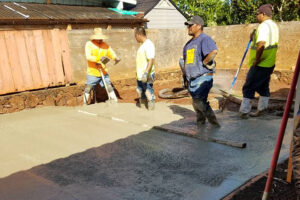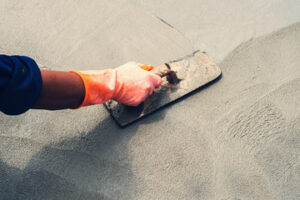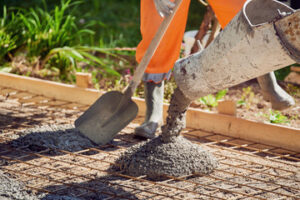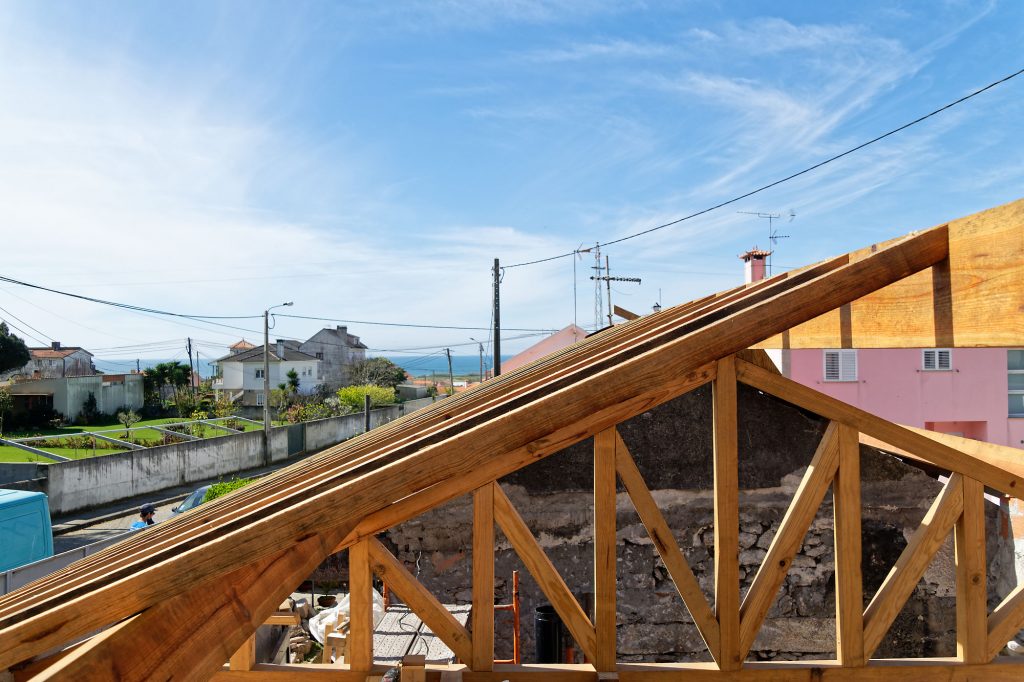Commercial Concrete Contractor Colorado Springs usually have a variety of responsibilities and duties related to large construction projects. Choosing the right one can make or break your entire project.
A concrete contractor should have extensive experience in the field. This is essential to completing the job correctly. A good concrete contractor will have a portfolio that shows his or her work as well as references from previous clients. This can be an excellent indicator of the level of quality that can be expected. It is also important to find out if the concrete contractor has a business website and contact information. If they do not, this may be a red flag that you should avoid them.
In addition to experience, a concrete contractor should be familiar with the permitting process in your area. This is critical, especially for commercial projects. If your project requires a permit, it will save you a lot of time and money in the long run to have someone who knows how to get the permits quickly.
Another important trait of a good concrete contractor is being able to keep other contractors and construction crews updated on progress. This is a critical part of the job because no other work can be done until the concrete is ready. This can be accomplished by utilizing project management software that can send updates to everyone involved in the construction.
Finally, a good concrete contractor should be reliable and trustworthy. This is important because you are going to be working closely with them during the construction of your home or business. If you choose a contractor that is unreliable or difficult to work with, it will make the whole project more stressful for you and your family.
If you are looking for a concrete contractor, it’s best to ask friends and neighbors for recommendations. This is a quick way to accumulate a list of potential contractors. Once you have a list, it’s important to review each one. You should also check whether or not they have a license and insurance. Choosing the right concrete contractor will ensure that your home or business is built properly and will last for a long time. It will also help you avoid any problems in the future.
License
Concrete is a critical building element in commercial construction, and commercial concrete contractors often work on large projects such as office buildings and retail stores. They have a deep understanding of the various types of concrete and how to use them to build structures that meet industry standards. Commercial concrete contractors are also familiar with local building codes and regulations.
Before hiring a concrete contractor, make sure they are licensed and insured. This is an important step because unlicensed contractors are not required to follow strict safety protocols, and they may not have the proper insurance in case of accidents or property damage. If you’re unsure whether a particular concrete company is properly licensed, ask for proof of their license and check online reviews to see if they are reputable.
A good concrete contractor should have a strong business plan and be able to communicate the benefits of their services. This will help you choose the right contractor for your project and ensure that you receive high-quality work that is finished on time and within budget. Additionally, a good concrete contractor should have a wide range of tools and equipment to handle different kinds of jobs.
The popular saying that you don’t know a man until you walk a mile in his shoes is especially true when it comes to concrete contractors. It’s essential to have experience as a laborer on a concrete crew before becoming a concrete contractor, and many of them start by working in the Cement Mason Union’s apprenticeship program for instruction and paid on-the-job training.
There was a time when concrete contractors prepared their own concrete, but most now create an agreement with a supplier for pre-mixed concrete. This allows them to save time and money on site by avoiding the hassle of mixing concrete themselves. They will usually have the ready-mix delivered to their site on a separate truck from the reinforcement materials they ordered.
Another important question to ask is if the concrete contractor is insured and bonded. A reputable contractor will be willing to provide you with proof of their insurance and will also have liability and workers’ compensation insurance. This will protect you if the concrete contractor is not able to complete your project on time or within budget, and it will also provide you with peace of mind that you are protected in case of an accident.
Insurance
As a concrete contractor, you must carry the proper insurance policies to protect your business. Hefty legal costs could devastate your business, so it’s vital to get insurance coverage that can pay for claims and lawsuits. There are several types of insurance for concrete contractors, including general liability, commercial property, workers’ compensation, and business auto insurance.
General liability insurance offers protection in the event you damage someone’s property or a customer is injured on your site. This is a standard policy for businesses that advertise or own properties that are open to the public. It is often packaged with a commercial property insurance policy to provide comprehensive coverage for your building and other assets.
If your employees are hurt on the job, workers’ compensation insurance pays for their medical expenses and lost wages. This type of insurance is required in most states and is essential for any concrete contracting firm. It also covers funeral costs in the event of a fatal accident.
Your business likely uses a number of vehicles, such as company cars, trucks to transport equipment and supplies, and large cement mixers. This is why it’s important to have commercial auto insurance. This policy provides coverage for your business vehicles in the event they are involved in an accident or damaged. It also covers any employees who are driving them.
Another common type of insurance for concrete contractors is inland marine insurance. This coverage is necessary if you have tools and equipment that are transported between jobs or stored at a client’s place of business. It offers protection against damage from common perils such as fire, theft, and water damage.
Umbrella insurance is an additional type of insurance that increases the limits of your existing liability insurance policies. It is especially useful if you have a claim that exceeds your existing policy’s limits. This coverage is often inexpensive and can save you a lot of money in the event of a claim. You can find out more about concrete contractor insurance and the different coverage options available by speaking with an independent agent.
Reputation
Concrete contractors are an integral part of the construction industry. They are responsible for bringing a building project to life, from its foundations to its final form. They have a unique set of skills that are necessary for working with concrete. A good concrete contractor should have a strong knowledge of the various stages of construction, from mixing to pouring to curing and finishing. They should also be able to manage their business operations effectively, which requires making confident decisions about hiring, accounting, and bidding.
A great way to gauge a concrete contractor’s reputation is to check out customer testimonials. Quality contractors will be happy to provide these. They will also be able to provide photo evidence of past projects that they have worked on. If a contractor seems reluctant to offer these, this could be a red flag.
It is also important to look at how a contractor communicates with customers. A good concrete contractor will be open and honest about the timeline of a project and any potential issues that may arise. They will also keep the client informed throughout the process. This can be done through a variety of methods, including texting, emailing, or even using concrete project management software.
When choosing a concrete contractor, it is important to consider their location. If they are located close to your home or office, it will be easier to work together. This will reduce the amount of time and money that you will need to spend on transportation and logistics. In addition, a local concrete contractor will be more likely to have the right equipment for your job.
A good concrete contractor will be able to help you build or repair a concrete structure quickly and at a reasonable price. They will also have the experience and knowledge to ensure that your concrete project is completed correctly, ensuring that it lasts for years to come. In addition, they will be able to save you money by fixing any mistakes that might occur during the construction process. To find a concrete contractor, you can search online or contact your local concrete supply company for referrals.

 Concrete driveways must be reset every few years due to settling, heavy rains, frost action, and vehicles. Concrete driveways require internal and external support to avoid cracking and settling. You can use steel reinforcing and a concrete base made from crushed stone to avoid these problems.
Concrete driveways must be reset every few years due to settling, heavy rains, frost action, and vehicles. Concrete driveways require internal and external support to avoid cracking and settling. You can use steel reinforcing and a concrete base made from crushed stone to avoid these problems.

 Finding concrete patios can be a daunting task. Thousands of companies, websites, and people claim to have a great concrete patio or guarantee a fabulous concrete deck. It is best to do your research before investing in any of these “improvements.” Here are some questions you can ask
Finding concrete patios can be a daunting task. Thousands of companies, websites, and people claim to have a great concrete patio or guarantee a fabulous concrete deck. It is best to do your research before investing in any of these “improvements.” Here are some questions you can ask